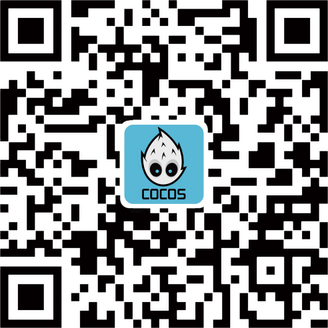Today, Tencent concluded its Global Digital Ecosystem Summit in Chengdu, China. Cocos CEO Walzer Wang was invited to attend the Summit and gave a keynote speech entitled "Cocos + Tencent Cloud, Simplify the Game Creation To The Extreme." The two sides have a win-win situation with cloud gaming and announced a strategic partnership to jointly explore and maximize the efficiency of the game development workflow in the cloud.
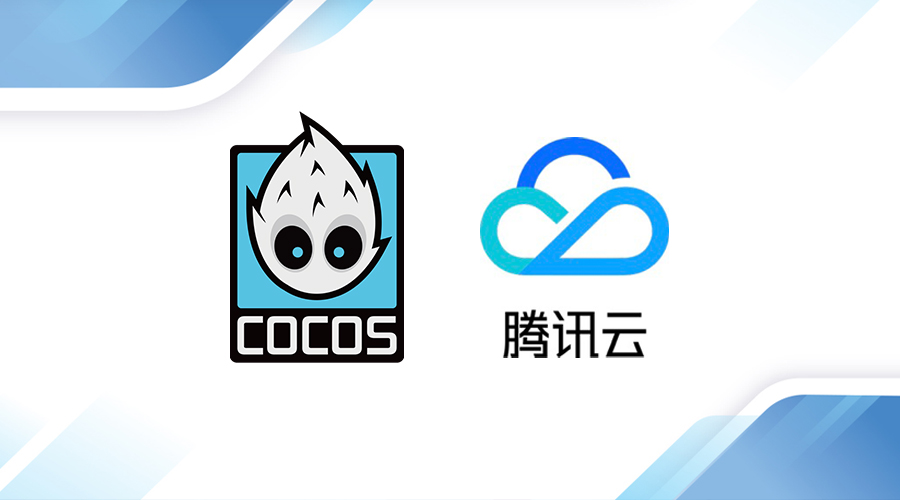
Cocos first released our premier game engine Cocos2d-x almost a decade ago. From that simple framework, code-driven work done in Cocos2d-x, to our editor, Cocos Studio, to our current product Cocos Creator, Cocos's pursuit has always been to improve development efficiency and to make game development easier for everyone wanting to build the best games in the market.
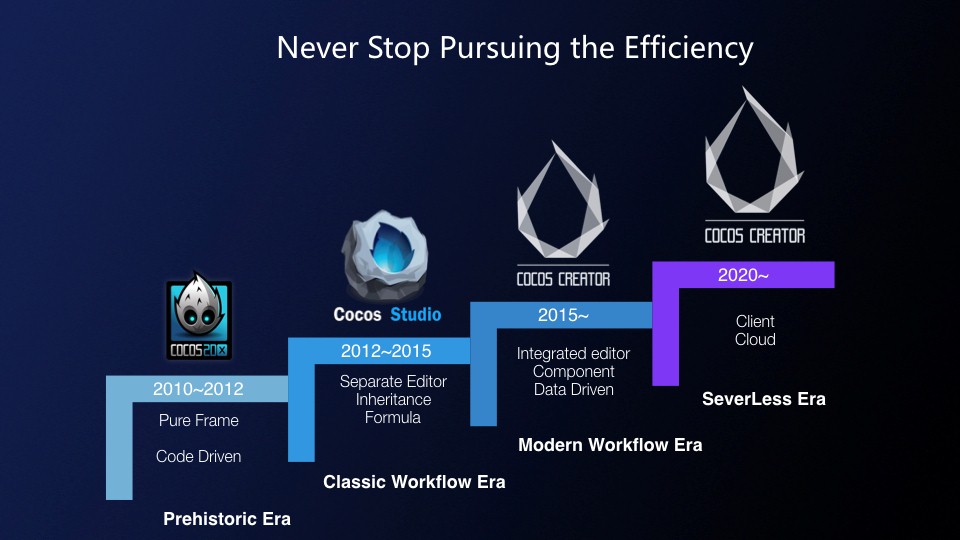
While the technology has evolved into using more scripting, data-driven, and integrated editors, we have also noticed that the technology of the game server has its own evolutionary path. In the early years, game developers would purchase servers to deploy to their own server rooms. Then there was a large number of virtual machines using the cloud, and then the model of dynamically buying by your needs. In the last year or two, the concept of “Serverless” began to appear. Direct use of PaaS services and cloud functions, regardless of server configuration, regardless of server deployment location, has become the latest use of game server technology.
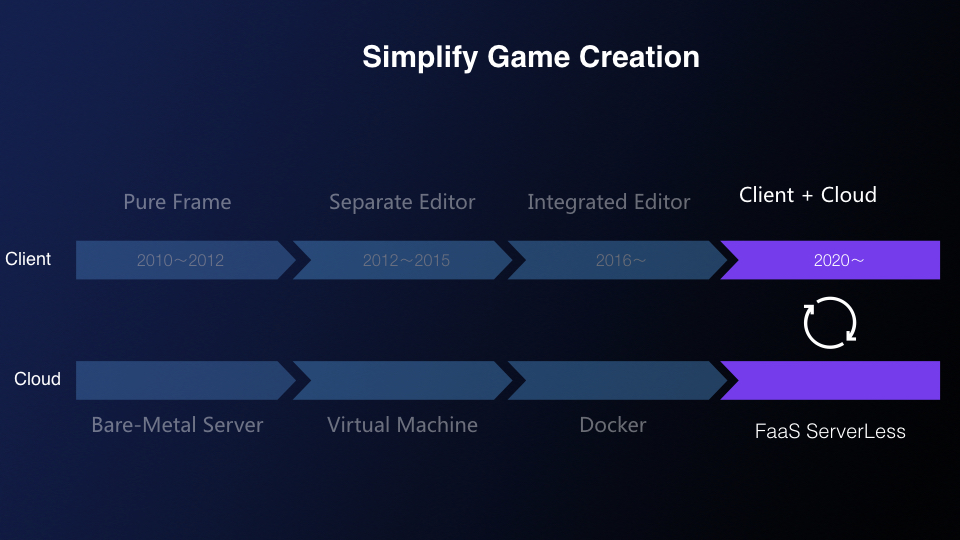
Cocos networking team has made great use of PaaS services and cloud functions as a server-side development solution since last year. Because both the client and cloud development use the same JavaScript programming language, and the development and deployment of cloud functions are straightforward. We no longer distinguish the programmer and work content according to the client-server.
Also, the programmer responsible for the work can now write the client-side and server code and debug it themselves, which reduces a lot of internal communication and joint debugging work. Secondly, the use of PaaS and cloud functions has caused game developers to no longer need to configure operation and maintenance personnel, and can directly transfer operations and maintenance to game logic development.
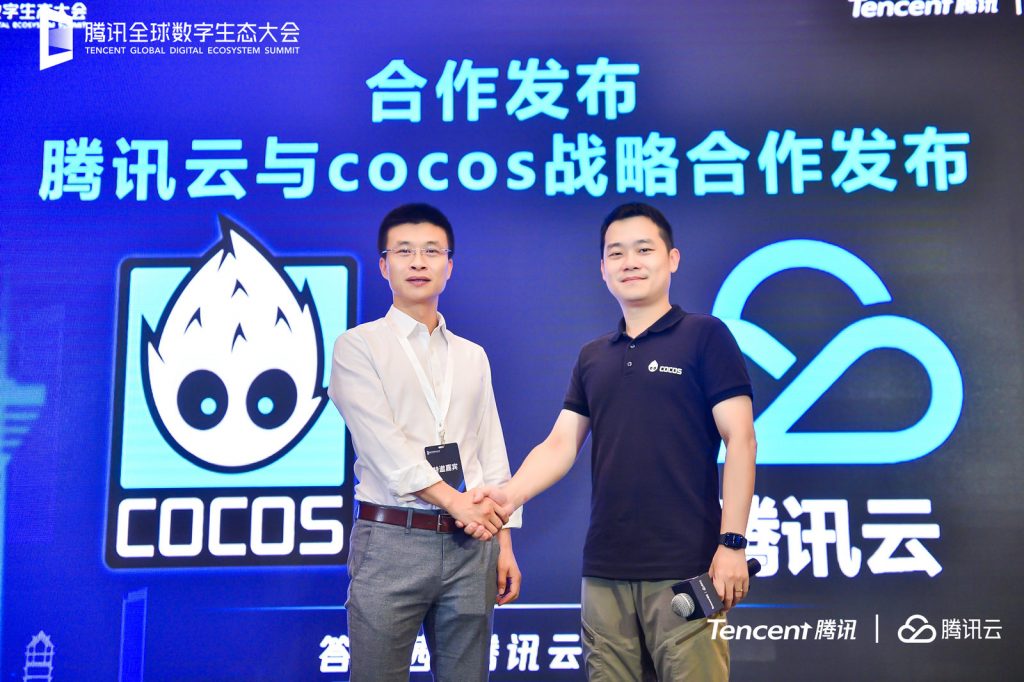
In the process of making our own games, we have accumulated a large number of developed components, such as leaderboards, chat windows, backpacks, resource management, hot updates, etc. These modules and cloud services can be fully linked together with no issues. When developing a new game, you only need to drag the ready-made module directly into the game and adjust several parameters to run, significantly improving the development efficiency.
For example, a game function integrated into Tencent Cloud, allowing the game's internal microphone to be used, can simply be configured in the Cocos Creator editor. We have completed a game called "Happy Beast Chess" on WeChat and QQ Small Game Platform to demonstrate the integrated calling process of these functions. This game will be entirely open-source for everyone in November.
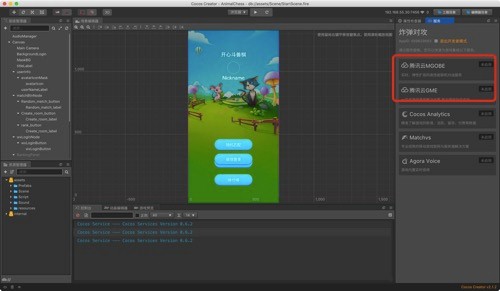
The rapid integration of this PaaS service is just the beginning. We are sorting out a large number of ready-made modules for the cloud, and combining Tencent Cloud's strong accumulation and capabilities in the game field to make engine prefabs open to the vast number of game developers.
The cooperation between Cocos and Tencent Cloud will inject new vitality into the ecological development of the game industry. In the future, through the strong alliance of Cocos + Tencent Cloud, it will provide game developers with products and services with higher efficiency and better experience, and jointly create a new model that will simplify the game creation threshold to the extreme.


